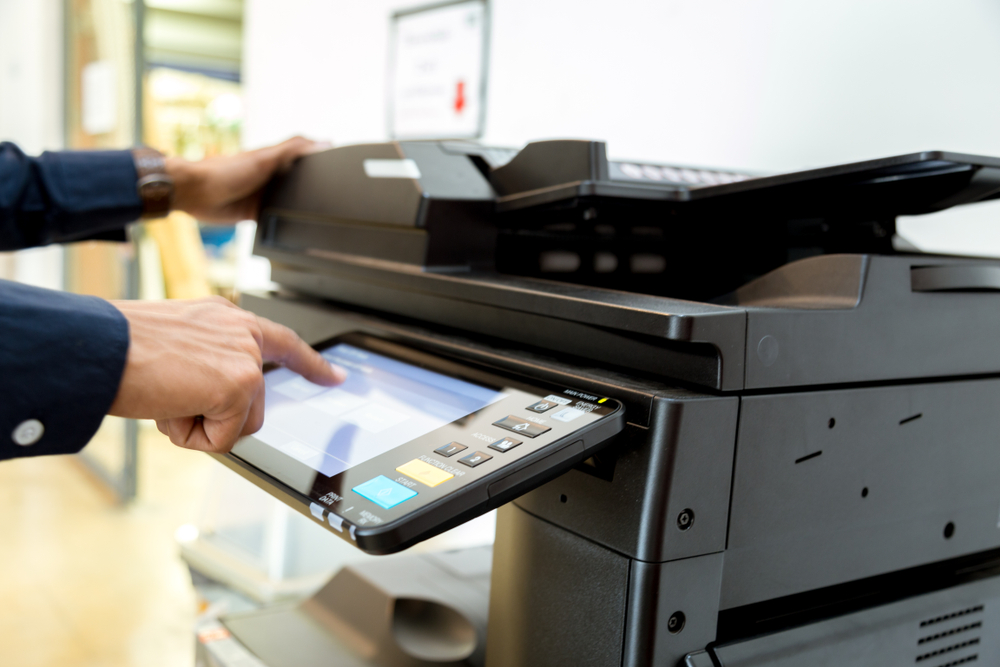Everything You Need To Know About Inkjet Printers
Everything you need to know about inkjet printers
A computer printing process that helps in recreating a digital image is known as inkjet printing. This is achieved by driving droplets of ink onto plastic, paper, or other materials. Inkjet printers are widely used for printing requirements across the globe. They come in different variants, right from small inexpensive consumer models to expensive professional machines. While the idea of inkjet printing originated in the early 20th century, the technology was developed in the early 1950s.

Below is some information about the inkjet printing technologies, types of inks used in an inkjet printer, best printers, and more.
What are the main technologies used in inkjet printing?
- Continuous inkjet (CIJ) – The continuous inkjet (CIJ) is an old technology. The ink droplets are sprayed at a high velocity (≈20 m/s), allowing a relatively long distance between the print and the substrate. The high drop ejection frequency is advantageous for printing at a very high speed. As the jet is always in use, there is no nozzle clogging, thereby allowing volatile solvents (ketones and alcohols) to be used, giving the ink the chance to “bite” into the material and dry quickly.
- Drop-on-demand (DOD) – The drop-on-demand (DOD) technology is divided into thermal DOD and piezoelectric DOD. The thermal DOD uses the process of thermal excitation to move tiny drops of ink. The cartridges consist of multiple tiny chambers, each containing a heater, all of which are constructed by photolithography. A pulse of current is passed through the heating element to eject a droplet from each chamber. This causes a quick vaporization of the ink in the chamber. This process creates a bubble which propels ink droplets onto the paper because of the augmented pressure increase. The surface tension of the ink along with condensation and concluding contraction of the vapor bubble further pulls a charge of the ink into the chamber using a narrow channel that is attached to the reservoir of the ink. Water-based inks are usually used in DOD technology. The piezoelectric DOD uses piezoelectric material which is placed in an ink-filled chamber behind each nozzle. The shape of the piezoelectric material is changed and it generates a pressure pulse in the fluid which in turn pushes a droplet of ink from the nozzle when a voltage is applied.
What are the different types of inks used in an inkjet printer?
- The most commonly used ink in an inkjet printer is the aqueous ink. This ink is used in most houses and offices when the printing is done from a desktop printer. Aqueous ink is made with a mixture of water, glycol, and pigments or dyes. It is widely and commonly used because it is inexpensive.
- Professional printers use solvent inks. These are made with volatile organic compounds (VOCs) and organic chemical compounds that have high vapor pressures. Pigments are used for the color as they are more resilient than dyes. These are inexpensive and allow the user to print on any surface.
- The other type of ink is the UV curable ink. It is a mixture of acrylic monomers with initiator package. Once the printing is completed, it is cured by exposing to UV light.
Which are the two best inkjet printers available in the market?
- Brother MFC-J460DW – This printer costs approximately $89 and is an all-in-one printer. It comes with scanning, copying, printing, and faxing facilities. The printer has a 1.8-inch color display, which can be used to control the settings. It also has support for two-sided printing and an automatic document feeder. It can print up to 12 pages every 60 seconds in black, and up to 6 pages every 60 seconds in color. The printer even features a USB port (plus a PC wire), wireless networking options, an Ethernet port to connect to a LAN, as well as Wi-Fi Direct for easy wireless connection between device and printer. The printer also offers many services including Google Cloud Print and Apple’s AirPrint.
- Dell E310DW – This printer costs about $84 and is an only black-ink printer. It is inexpensive and can print up to 27 pages every 60 seconds. It can print both sides automatically and has a cassette input paper tray. The printer can be tethered to your PC via a USB cable or Ethernet wires, or it can be connected to your WiFi for cable-free printing. It is also supported by the Dell Document Hub cloud service for printing from cloud services. It can handle A4, legal, and custom media.
Where can I buy the best inkjet printer?
The market is brimming with a wide variety of inkjet printer. Follow the below tips to buy the best inkjet printer at a reasonable price:
- Understand your printing needs. If you need a printer for home or for office use along with how many people would be using the printer.
- Based on your requirements, conduct a thorough research of the various brands of printers and their models.
- Once you narrow down your search, visit a electronics store to get a fair idea of the printer and its printing quality.
- Note the price variations in buying the printer from a store as compared to buying it online.
- Additionally, ensure you are provided with a proper warranty for the product.
- If your need is not urgent, you can always wait for the seasonal sales where you can buy the best inkjet printers at discounted prices or get worthwhile deals.















